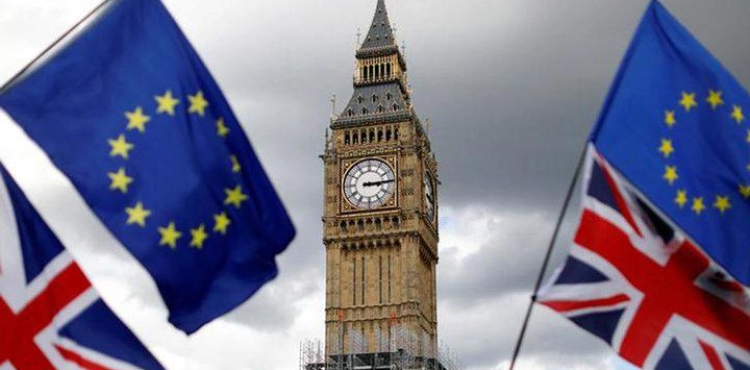The British government decided to impose less strict border controls than expected with the European Union after Brexit, in order to avoid damage to institutions that are already victims of the economic effects of the emerging Corona virus, the media reported Friday.
Britain had intended to impose controls on goods imported from the European Union as of 2021 at the end of the transitional period after Brexit, which ends in January. The government reported in February that the goal of oversight was to "maintain safe borders" and "deal on an equal footing" with countries that Britain deals with commercially.
However, according to the "Financial Times" newspaper, "a less strict" temporary system "is for goods imported from the European Union and enter the country through ports such as Dover if there is an agreement with the European Union or not. However, it is expected that goods exported from Britain to the European Union will be subject to strict control.
"We are fully aware of the impact of the Corona virus on British institutions and when we will regain control of our laws and borders at the end of the year, we will adopt a pragmatic and flexible approach to help institutions cope with changes and opportunities outside the single market and customs union," a government source told France Press.
Britain is negotiating with the European Union to determine the trade relations between them at the end of the transitional phase, and discussions are still still in a dead end. And these negotiations will be intensified to find a solution on time because the British government flatly refuses to extend this stage.
Without an agreement, the WTO´s sole rules, with its high tariffs, will apply in trade relations between the former partners.
A virtual meeting will be held on Monday between Prime Minister Boris Johnson and European officials.
Britain is the second most affected country in the world by the epidemic, with more than 41,000 deaths, and it has been affected greatly economically. In April, the GDP decreased by 20.4%, the first full month of isolation that began to be applied on March 23, the National Bureau of Statistics reported on Friday.
The country gradually graduated from isolation, with all stores reopening, and restaurants and bars closed.












